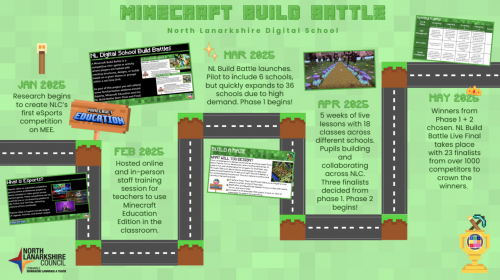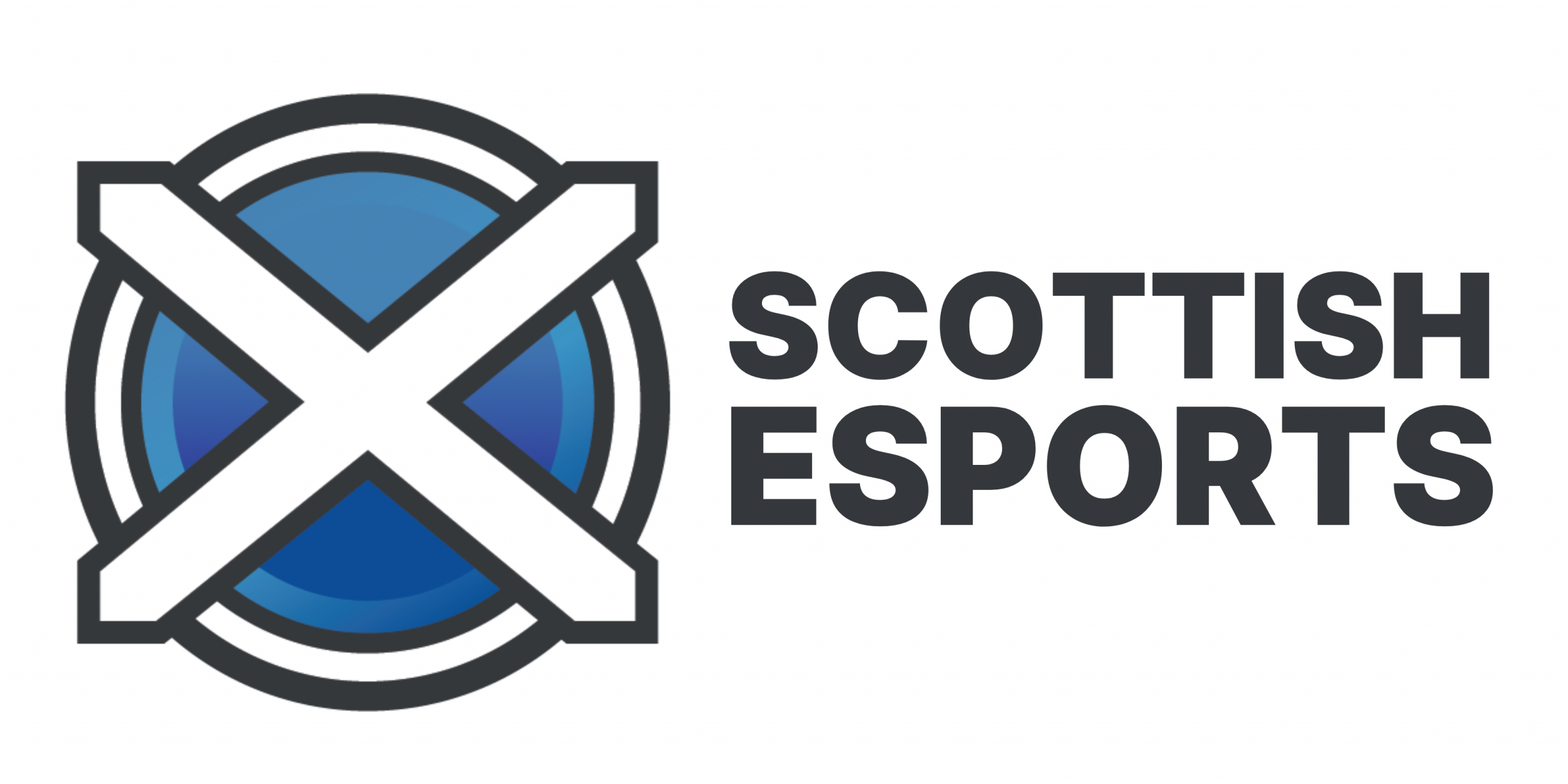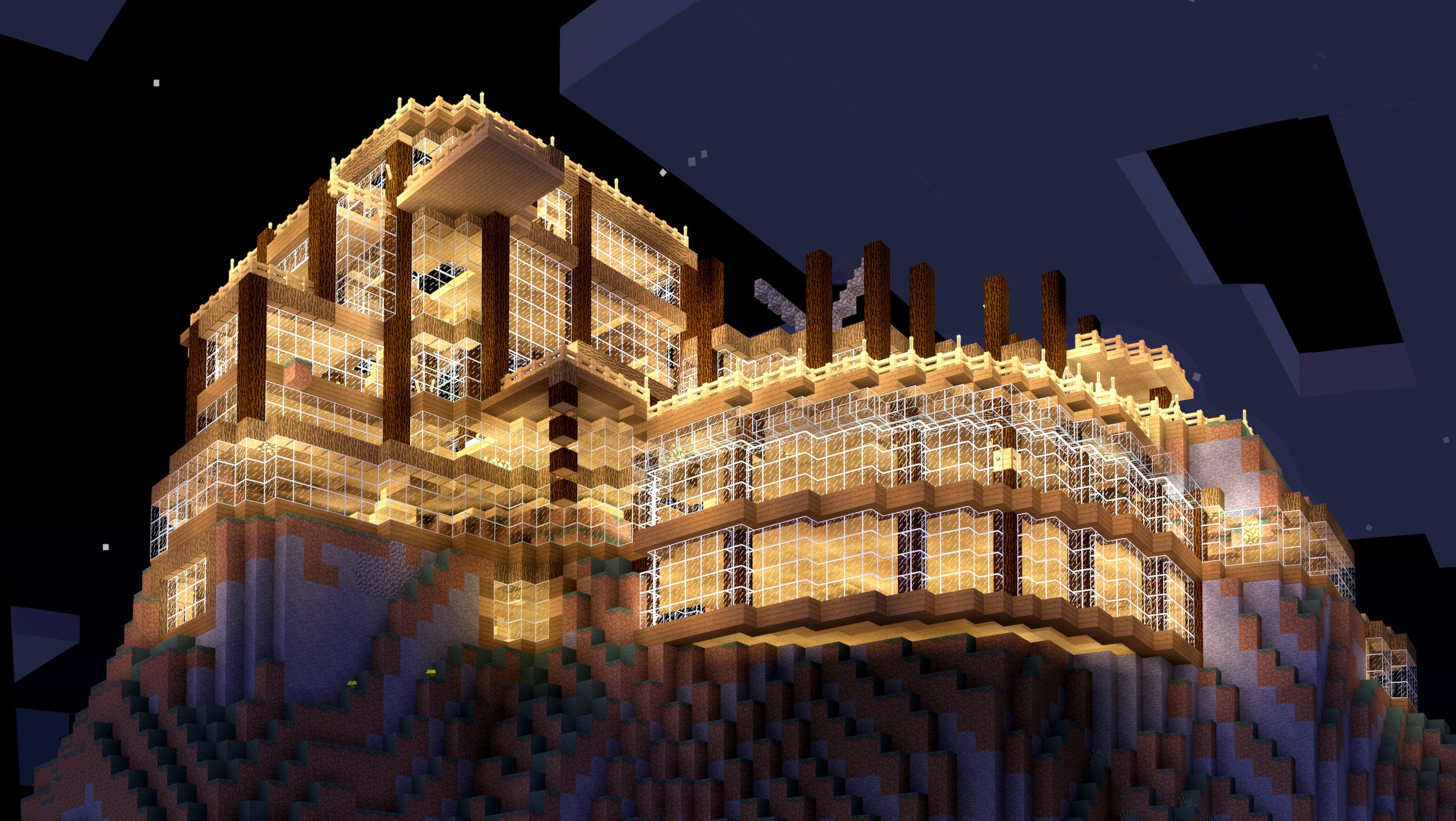In a landscape often dominated by traditional sports, one North Lanarkshire Council project is proving that collaboration, creativity, and competition within the virtual world are paving new pathways for young Scots. This initiative places the region at the forefront of primary school engagement in competitive gaming.
North Lanarkshire Council’s ‘Minecraft MAYhem‘ project started small, a pilot intended for just six primary schools. It ended up engulfing 36, demonstrating a huge, previously untapped appetite among young students and their educators for organised, competitive digital play.
The project, spearheaded by the council’s digital pedagogy team, took the hugely popular Minecraft Education Edition and applied a competitive ‘Esports build battle’ framework. The goal was to move beyond merely engineering or STEM lessons, adding a crucial competitive edge not often seen at the primary level.
“We wanted to build in a competitive Esports edge which hadn’t been done within North Lanarkshire primary schools,” explains Callum Croughan, one of the Digital Pedagogy teachers involved. “We would like to have an offering that goes through primary and then into secondary, having this kind of progression through there as well.”
The five-week programme involved live lessons focusing on collaboration and digital skills, culminating in a live, in-person grand final where six finalist teams faced off to build “Steve’s Dream Castle” under intense time pressure.

Crucially, the assessment wasn’t just about the most aesthetically pleasing build. The teams were judged using a scoring rubric based on meta skills developed by Skills Development Scotland, focusing on self-management, innovation, and social intelligence.
Alistair Mackay, also on the Digital Pedagogy team, emphasises the educational core of the project:
“We always made sure it was ‘yes, you’re having fun and you’re playing Minecraft’, but there’s always an educational focus.”
This focus helped overcome any initial concerns from parents or teachers about the role of ‘gaming’ in the classroom. Instead of being viewed as a distraction, it was celebrated as a powerful tool for developing core life skills.
A Level Playing Field for All
One of the most heartwarming outcomes of the competition was its sheer inclusivity. The virtual environment stripped away many of the physical barriers found in traditional competitive activities, opening the door for everyone to shine.
Teams from Additional Support Needs (ASN) establishments competed on an equal footing, with one team making it all the way to the final.
Alan Cooper, Curriculum Manager for digital, notes this achievement with pride:
“That’s probably the first time we have run a competition in NLC in a very long time where all schools were there to win it… It was really rewarding to see something like that, such a level playing field.”
Furthermore, the overall winners were the only team composed of all four girls, challenging the perception that competitive gaming is strictly a male-dominated arena.
Callum Croughan highlights this point:
“It’s just to kind of show that actually, this kind of idea is going to be for everyone. It’s not just a, ‘oh well, our girls, don’t play games, I don’t game or do like consoles or sports or Minecraft’… We want to make sure this project is fully inclusive.”
For the children themselves, the experience was unforgettable. Zoe Elder, another Digital Pedagogy practitioner, recalls the gratitude of the participants:
“The standout thing was how grateful the kids were. Loads of kids had said that they’d never been to a competition like that before… ‘This is so cool. I can’t believe we’re here.’”
Building Future Careers
Beyond the thrill of competition, the project acted as a vital educational stepping stone, linking primary school fun to genuine career pathways in the flourishing Esports and creative industries. The project was judged by industry professionals, including a voiceover actor and representatives from the Esports field, to showcase the breadth of career opportunities.
This early exposure is crucial as North Lanarkshire looks towards delivering National Progression Awards (NPAs) in Esports at the secondary level.
“We want to showcase what they can also get out of Esports. It’s not just they’re going on and playing, there’s so many other careers and opportunities around the events, around the actual planning, around the actual training of teams,” Mr. Croughan states.
The team advises other local authorities considering similar projects to focus heavily on preparation and partnership, particularly with IT teams, to iron out technical complexities. They stress that teachers don’t need to be Minecraft experts, they just need to facilitate the learning.
Lauren McIntyre, a Digital Education Officer, sees the project as a strong foundation:
“For us, this was gauging the interest to see if this was a viable option, and then linking with the appropriate people… It’s given us links to the college and seeing if there’s any partnerships there that we could do with the high schools once that’s up and running.”
As Minecraft MAYhem moves towards its second year with an even greater interest, North Lanarkshire Council is leading the way in proving that the digital world offers a rich, inclusive, and competitive environment that is truly building the future talent of Scotland’s burgeoning Esports sector. The council’s efforts, alongside established regional youth initiatives like the work carried out by Emma Williamson and the Wishaw YMCA, cement North Lanarkshire as a powerhouse for youth engagement and innovation in gaming and Esports, setting a clear, progressive standard for the rest of the country.
Credit: MinecraftPhotography on Deviant Art for Feature Image

